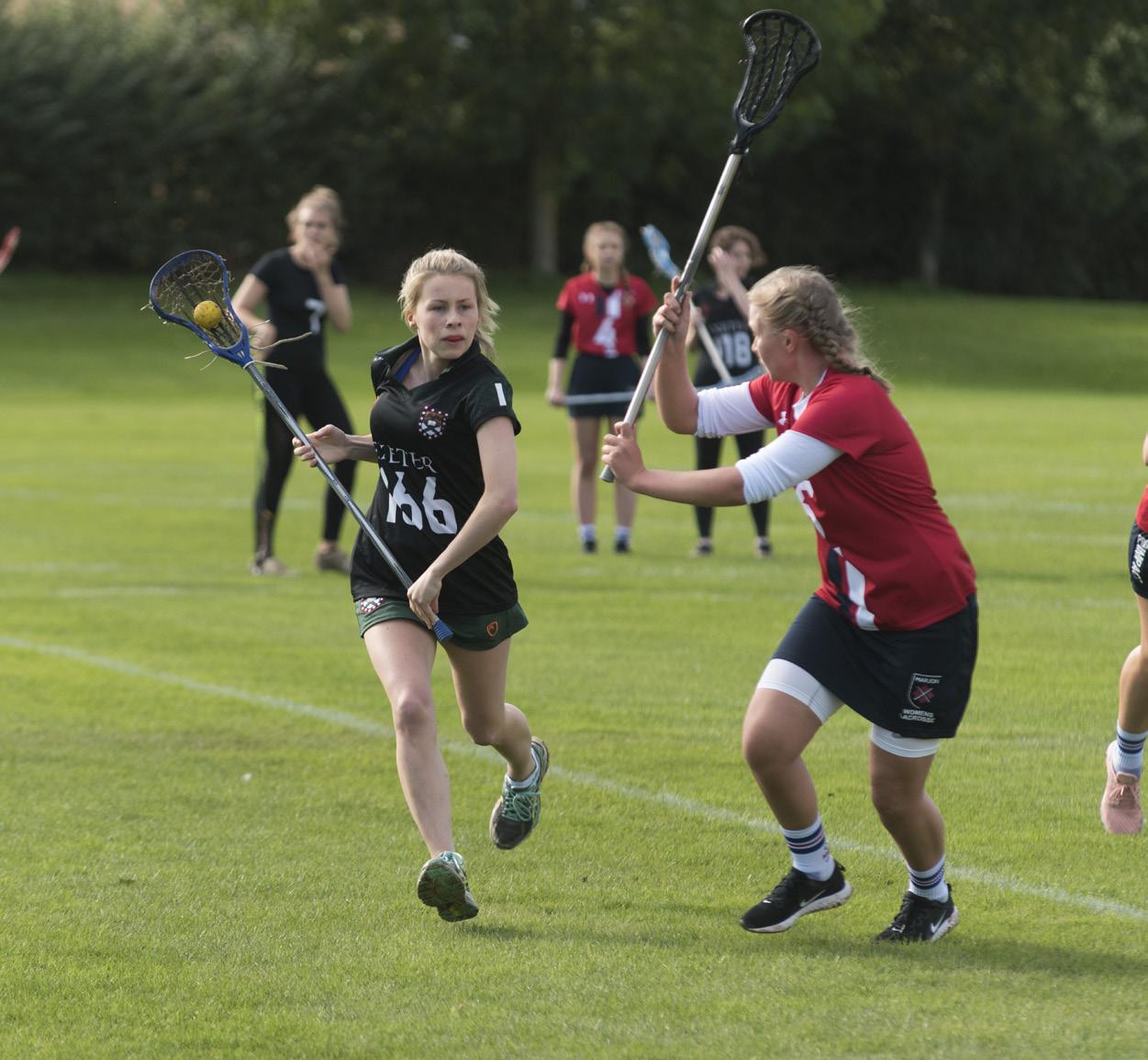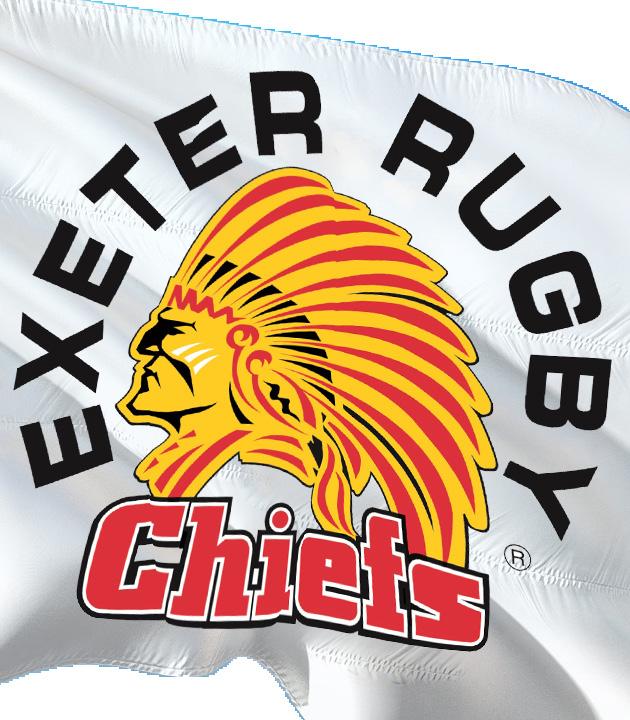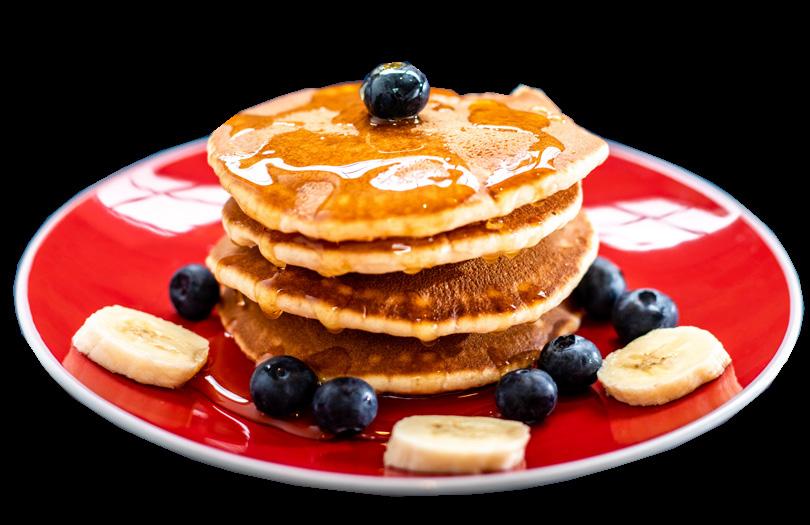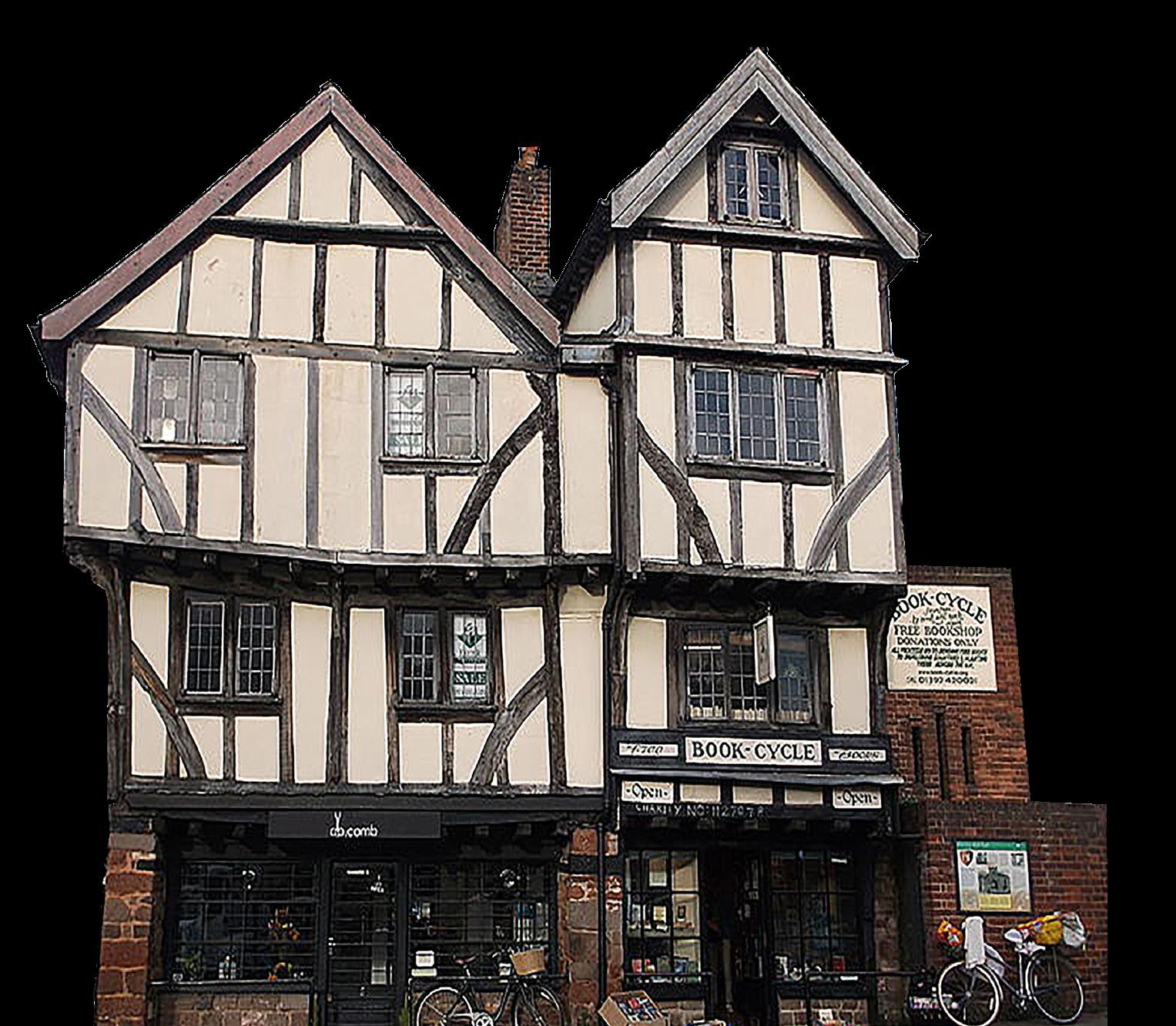
20 minute read
shells to help them hunt
by Exeposé
We built this city
Elinor Jones, Online Lifestyle Editor, examines how diseases thrive on the expansion of urban living
Advertisement
AS lockdown eases, the sudden influx of visitors to rural areas is a cause for concern for public health and local authorities in the management of coronavirus. However, densely populated cities across the world have been the areas hardest hit during the pandemic, shining a light on the complexities of containing the spread of a virus amidst confined accommodation, busy high streets and on public transport. The coronavirus pandemic has demonstrated the need for better urban planning, in order to prevent cramming, in the hopes of fitting as many homes into the smallest area possible, and the need for more stringent hygiene procedures in public places, such as on the daily commute and in our schools.
The virus’ hold over cities and towns is not a modern, 21st century phenomenon brought on only by increased international travel and fast transport. History has repeated itself time and again in the exponential spread of infecintelligent dolphins are, here is another example of their braininess. Scientists have observed that dolphins inhabiting Shark Bay have learned an unusual hunting strategy called “shelling.” Dolphins trap fish inside the empty shells of giant snails, bringing the shells to the surface to shake them out into their open mouths.
This is the second-known instance of dolphins using tools to help streamline their foraging. In 1997, bottlenose dolphins were found wearing marine sponges over their beaks for protection when foraging for fish along the sea floor.
Additionally, this technique not only proves that dolphins have an elevated method of hunting, but that they learn from their peers. Sonja Wild, who conducted the research for her doctorate at the University of Leeds, expressed her surprise as “dolphins and other toothed whales tend tious diseases through urban areas, from measles to the Black Death, with such illnesses potentially arriving in human populations earlier than once thought; evident during the emergence of modern-day cities.
Crossing over from cattle to humans in 500 BC, 1500 years earlier than previously estimated, measles is thought to have become prevalent once cities first started to emerge; needing a dense enough population to wreak havoc upon. Although in recent decades vaccination drives have almost eradicated it from circulation, measles is still one of the world’s most infectious diseases affecting humans, causing to follow a 'do-as-mother-does' strategy for learning foraging behaviour."
The researchers, having observed the quick nature of this shelling technique, used a social network analysis to discover how the strategy came to be learned. This involved looking into social network, environmental factors, and genetic relationships and drew a conclusion that rather than this skill being passed on generation-to-generation, it has more socially learned roots. Therefore, this approach to survival could be considered a cultural behaviour. The effect of the high temperatures on the ecosystem killed off many gastropods acute respiratory illness, a rash and malaise as a result of a single-stranded RNA virus, which sequencing has shown to be much older than initially thought. Transmitted through contaminated droplets, confined spaces and stagnant air may become highly infected with measles, meaning it is likely that the emergence of crowded cities and towns provided a breeding ground for the infection. It is estimated that the virus needs between a quarter of a million and half a million people within an area to maintain it in circulation.
Even before the beginning of the Industrial Revolution, cities played a major role in the epidemiology of infectious diseases. A considerable factor in the spread of the Black Death in the 14th century was the mass movement from rural areas to urban areas, meaning towns became bustling, housing became crowded, and virus levels within the population prevailed. John Snow discovered the link between cholera and conhas become more frequent since the marine heat wave off Western Australia in 2011. The effect of the high temperatures on the ecosystem killed off many gastropods. Wild commented that they thought the dolphins took advantage of "the die-off." Indeed, it was in the next season that the use of the technique increased, making it possible to understand how young adult dolphins learned to 'shell'.
This evidences the marine mammals' ability to adapt to environmental changes. Considering the effects of climate change, it is interesting to observe dolphins reacting to the changes in their ecosystem to survive in exacerbated circumstances.
This new discovery of learned behaviour adds to a growing comparison between dolphins – cetaceans more generally in fact – and great apes. Michael Krutzen, of the University of Zurich, pointed out that both are “long-lived, large

taminated water when deaths from the disease rapidly increased in the mid-19th century due to overpopulated areas accessing a limited water supply. In 2020, some urban areas have had to enter a second lockdown with new restrictions placed on residents where COVID-19 cases have spiked (such as local authority housing in Melbourne, Australia) despite most of the country enjoying the freedom of few coronavirus cases.
There is a need for a deeper understanding of the impacts of modern city life
New evidence from genetic studies of the history of measles, as well as current anecdotal information and case numbers from coronavirus, show the need for deeper understanding of the brained mammals with high capacities for innovation and cultural transmission of behaviours.”
This adds to a large body of evidence of dolphins' intelligence. Already, their behaviour has shown them to be quick learners and talented mimimpacts of modern city life. Comprehension of how people live, work and move in and out of our cities and towns is essential in order to control infectious diseases and prevent another historic pandemic. Over the next 30 years, urban populations are set to expand to a level where almost all of the world lives in cities and towns, where currently half of inhabitants do. Infectious diseases such as lower respiratory tract infections, diarrhoea and HIV/AIDS are a major concern for lower income countries, whilst chronic illnesses like heart disease, obesity and stroke are increasing in prevalence in higher income countries.
Whether diseases are spread through close contact and poor quality of housing and sanitation or through lifestyle changes that result due to living in urban areas, careful consideration of the health needs of city populations is crucial to prevent ill health in the future.
Images (top to bottom):
Moving with porpoise
Bryony Gooch, Editor,
IF you were not aware of just how
details new discoveries in dolphin behaviours
Unsplash; KTEditor, Pixabay

ics, but they also develop self-awareness; problem-solving skills such as innovation and teaching ability; and a degree of emotional intelligence; displaying such emotions as grief, joy and playfulness. Images (top to bottom): Paige Page, Pooya - both Unsplash
Back...but not up and running
Sport Editor Nick Powell discusses COVID-19's overwhelming impact on university sport
FOR so many of us, the return of our studies after six months away is a very welcome one.
Things are not going to be entirely normal, but the main reason we attend university – to read, research and write about those subjects which we are passionate about – will be completely possible, if a little challenging.
It will, however, be another four months before such a critical part of many of our fellow students’ university experiences is able to return. That being the chance to play sport, alongside or against the people we go to university with the overwhelming majority of both British University and College Sport (BUCS) and Exeter Intramural competitions being delayed to January 2021 at the earliest.
And that really is the earliest. One of the few certainties is that there is much more uncertainty on the way. For Cameron Taylor, outgoing Athletic Union (AU) President (pictured above right), uncertainty has been “one of the biggest challenges. When will we see the return of all sports? What will sport look like in a postCOVID era? We just don’t know.”
Another certainty is that there will be no prospect of the previous season being completed. Taylor conceded he was “gutted” both for the sides closing in on major BUCS success last season, such as Women’s Lacrosse, Men’s Cricket and Rugby and Mixed Golf, and for the fact that the “seismic” shift from a packed end of season calendar to no students being around meant he was unable to “wrap up…and deliver on those key AU events” which would have rounded off and earned him deserved recognition for so much of the hard work he had done in the role.
Taylor had hoped he could continue some of that work this upcoming year, but was beaten by a razor-thin margin by Ben Hart, who is likely to feel radically different about the role he is inheriting than on the day he was elected.
One indvidual who will have a similar feeling is George Warne, one of the two incoming football Club Captains.
Obviously the circumstances are not as we imagined when we were chosen GEORGE WARNE, EUAFC CAPTAIN
New sporting committees will be inheriting incredibly uncertain situations on the back of no committee training, and will have some of the very best aspects of their roles curtailed whilst having huge challenges regarding recruitment among other things.

when we stood and were chosen...of particular concern is the future [of the club] beyond this year."
Spare a thought for Chris Hillman too, outgoing Lacrosse Tour Secretary and incoming Social Secretary. Having arranged a tour for 2020, which was "a lot of work" and unsurprisingly cancelled, he now faces a year where, for the first time in living memory, the ritual of piling into Timepiece after a packed social won't be able to happen.
Hillman felt it was "massive shame" the Women's 1st team didn't get the chance to win a historic BUCS Gold after their final against Durham in March was cancelled, and for the recruitment, there is "stress on the men's side" with socials and face-toface conversations so key to getting men in particular to play the game.
Nevertheless, he feels a "challenging" year will not be overly difficult. "There are so many tough aspects, and we've got a tough year ahead, but I'm willing to take it on and see what happens. "Our venue for next year have said we can have multiple evenings in the first few weeks of term," and they have worked together to come up with plans to make sure they are able to keep the critical social side ticking over. "Say for example if venues are limited to a certain capacity, you could have one set of people one night, and another for another night."
94 per cent of universities have reported increases in the use of counselling
The determination to make things work is matched by the enthusiastic Warne, who is full of ideas ranging from NHS fundraisers, where footballers ran a combined 4000km at the start of lockdown, to bringing in "buddy systems" to help freshers settle in and interact with club members, whilst limiting the number of people they interact with to ensure social distancing. "[I'm] very proud of my committee" he added, "we have lads working overtime with stash, social media and general secs working overtime. Lots of our members should begin to be appreciative of the immense effort a small section of students, like themselves, do merely for the enjoyment of others."
And Taylor remains relatively positive as well, "[The AU] are as prepared as they can be, and as prepared as other institutions...we're all in the same boat together, and it's about working together to try and make sport happen and deliver the best sporting experiences we can do."
There are many at the University who don’t play sport, and for those of you who may have stumbled upon this page inadvertently, or Freshers who wanted the full Exeposé experience with little intention to engage in university sport, it can be difficult to understand why sport which is completely amateur (save for some scholarships and expenses paid to certain top athletes), is worth making such a fuss about.
Perhaps the main reason would be the mental health benefits. Mental health issues are becoming more and more of a problem at universities with a 500 per cent increase in students suffering from mental health issues between 2006 and 2016. 94 per cent of higher education institutions have reported increases in the use of their counselling services in recent years.
University age is one ripe for the development of mental health issues, and potential homesickness, social anxiety and the intensity of having to fit in, as well as do a degree, can be a major burden.
Image: pxhere Image: Neha Shaji


at Exeter when I was in the early stages of first year back in October 2018. Their last words of the article read: “A regular escape into the sporting domain provides an often much-needed break from reality.”
They credited the chance to throw themselves into sport for helping them fight their “ongoing battle with mental health” described as “the hardest thing I’ve ever had to come to terms with, let alone deal with.”
It was a brilliant reminder of the positive effect sport can have, and had a profound effect on me. As a severe Obsessive Compulsive Disorder (OCD) sufferer myself, this is something I can relate to hugely. Releasing endorphins while surrounded by teammates brings with it a sense of joy that is so satisfying and calming, win or lose.
Virtually all sports at the University have some kind of team aspect to them and even individual sports are ultimately played in teams, with each player receiving a point, for example. The team aspect allows people to make friends, which is becoming increasingly difficult for every new group of Freshers with the comfort of being able to hide behind one’s phone easier and easier. Indeed the absence of sport is just one of a number of reasons making friends will be more difficult during COVID-19 social distancing.
Sport will return to Exeter, and committees will be supported to be able to keep their clubs alive, but the lack of on-the-field action will serve as a reminder that this pandemic is far from over.
Sport Editor Joel Edwards previews the season ahead for Exeter City, hoping sparks will fly to send the Grecians up
IN what has been a season different to anything any of us have ever experienced, one thing has remained the same: Exeter City have fallen at the final hurdle and remained in League Two. Like a Pixar film, their season has reeled the fans in and inevitably left us in tears. However, more like Cars 2 than Coco, these tears are tinged with disappointment as fans question what could have been.
In unprecedented times, adjusted points were used to determine the final standings in the world’s greatest league: League Two. With the division halted with nine games to play, and Exeter three points behind not only the automatic promotion threshold but also fierce rivals Plymouth, to finish in the play-offs was a definite anticlimax and frankly a disappointment. Matt Taylor had coaxed some very strong results and dazzling play out of the Grecians throughout the 19/20 season, worthy of automatic promotion and a coveted spot in the world’s second greatest league: League One. However, the St James’s Park faithful were left watching their team lose
FOLLOWING a lengthy campaign and debate within the Exeter rugby community, the Exeter Chiefs responded to scrutiny for their club branding. A campaign group called Exeter Chiefs For Change petitioned the Union rugby club asking them to remove their club branding, which uses Native American imagery, stating: “There is no place in a predominantly white British environment for appropriation of Indigenous Peoples‘ imagery that has no relation whatsoever to the history of the club, or the city.” The petition, started by supporters of the club, currently has almost 5,000 signatories.
The club's statement discussed an internal review, in which it engaged with “its sponsors and key partners to seek their views – and they have also listened to the response of our supporters, the wider rugby community and certain sections from the Native American community, all of whom have provided us with detailed observations in letters, emails, social content and videos.” From this they concluded that “the use of the Chiefs logo was in fact highly respectful,” as was their “current branding.” However, they acknowledged that their mascot, Big Chief, “could be regarded as disrespectful” and they will not be using it anymore.
The Exeter-based rugby club have been officially known as the Chiefs since a third play-off final in four years, an unfortunate record that all associated with the club will be hoping has come to an end. However, as heartbreaking as this unwanted record is, it does show that the team has been achieving consistently high league finishes, inspiring some hope for the season to come.
Taylor has coaxed some dazzling play out of the Grecians
A large chunk of this success is down to the academy. Exeter City have produced several fine players who have gone on to play in the Premier League (the world’s third greatest league) such as Ethan Ampadu and George Friend, as well as Ollie Watkins, this season’s top scorer in the Championship. 11 of the current 23 man squad are academy graduates. Will this be the year Matt Jay or Archie Collins break into double figures in the scoring charts? Will Jack Sparkes get another run in the first team following his return from injury? Image: Owain Evans 1999, although the board stated that “the name Chiefs dated back into the early 1900s and had a long history with people in the Devon area.” The petition currently has almost 5,000 signatories
That being said, the petition itself noted “the club doesn’t even need to change its name - Exeter Chiefs could refer to the Celtic Chiefs who inhabited the city and contributed to its rich and diverse history. It is the imagery that must change.” Which other graduates will be thrust into the first team, grab their chance and set League Two alight? This season, as always, promises further excitement from the academy graduates of Exeter City.
Over £7 million of transfer sales in the last five years have allowed the Grecians to splash cash on the budget galácticos that form the rest of the squad. Ryan Bowman, an iconic triangular haircut away from Ronaldo, finished as Exeter’s top scorer in 2020 with 14 goals. Nicky Law, who has gone one step further and emulated Zidane’s bald head, dominated the middle of the park as City’s chief creative force, finishing the season with a very respectable seven goals and seven assists. Undoubtedly, this season’s star player, honoured with Player of the Season, was Randall Williams. The David Beckham of the budget galácticos, Williams played his part with 19 goal contributions including 14 assists; a joint league high. If Exeter can hold on to these star players, they will be a force to be reckoned with next season.
A number of the old guard have
The debate of the Chiefs’ branding comes on the heels of this summer’s Black Lives Matter protests in which wider discussions of racism and cultural insensitivities have entered the mainstream discussion. But cultural misappropriation has been a regularly occurring debate over the past few years.
At Coachella, festivalgoers wearing indigenous headdresses, kimonos or dashikis have been criticised for cultural misappropriation. The discussion of the Chiefs primarily relates to the commercial use of Native American imagery including the sales of indigenous headdresses and the club’s Tomahawk Chop chant. moved on following defeat in the playoff final. Home grown hero Dean Moxey, fan favourite Craig Woodman and third-top scorer this season Lee Martin have all said their goodbyes, and replacing these departures will be key to the success of the Grecians this season.
It is uncertain when fans will be allowed back inside the superior St James's Park, but as soon as the go ahead is given and you feel safe to do so, I cannot recommend going to support the mighty Grecians enough! Academy prospects and star players are not the only thing to look out for - student deals make going to support your local club both a great social experience and crucialy affordable. The indigenous headdress itself holds a significance within Indigenous culture as it used to indicate a figure’s importance within a tribe. Meanwhile, BT Sport weighed in by announcing they will be axing the Tomahawk Chop fake fan-noise at Premiership rugby matches.
Some have argued that the Chiefs’ branding does not intend to offend, merely functioning as a way for supporters to identify with the club and cheer their team on. Or they have suggested that it could be compared to that of the London Irish, a club founded by student exiles in the 1800s, or the Saracens, so named in relation to Saladin the Kurdish leader of the military campaign against the 12th century crusaders. The Saracens’ own mascot is Sarrie the Camel – although there is more indication the 12th century Saracens rode horses, and that this merely plays on Middle Eastern stereotypes.
While the Exeter Chiefs seem satisfied with their decision to drop ‘Big Chief’, the Chiefs For Change campaign were notably disappointed. They responded in their own statement that “Exeter’s refusal to fully listen to these please is tone deaf and sticks two fingers up not only to them but to all minorities.” Either way, there is an indication that this debate will continue within the Club, and that it might very well extend across the rest of the league.
Exeter’s position come May 2021 will be affected not only by any further outbreaks, but also the squad. If the academy has pumped the first team squad full of more gems and the creative core remain in the South West, this season could bring many spoils. Matt Taylor has built a good footballing foundation and league finishes of 9th in 2019 and 5th in 2020 suggest the only way is up, and there is much to be excited about in red and white.

Exeter remain Chiefs
Editor Bryony Gooch discusses a potential rebranding for the Chiefs before the start of the season

Image: Wikimedia Commons
Club profile:

Founded: 1871 League: Premiership Rugby Highest finish: winners (2016/17) Stadium: Sandy Park Capacity: 12, 921 Captain: Jack Yeandle Director of Rugby: Rob Baxter Chairman: Tony Rowe OBE 2018/19 placement: runners-up (first in the league season, lost in the final vs Saracens) Recent finishes: runners-up in 2015/16 and 2017/18 Highest European Champions Cup finish: quarter-finals (2015/16) Relegations: 1 (1994/95) Recent honours: RFU Championship winners 2009/10, LV Cup champions 2013/14, Aviva Premiership champions 2016/17, Anglo-Welsh Cup champions 2017/18 The Chiefs are the only side to win the top four tiers of English rugby Notable EURFC alumni: Henry Slade, Sam Skinner, Jack Maunder, Sam Maunder, Richard Capstick, Tom Lawday.




